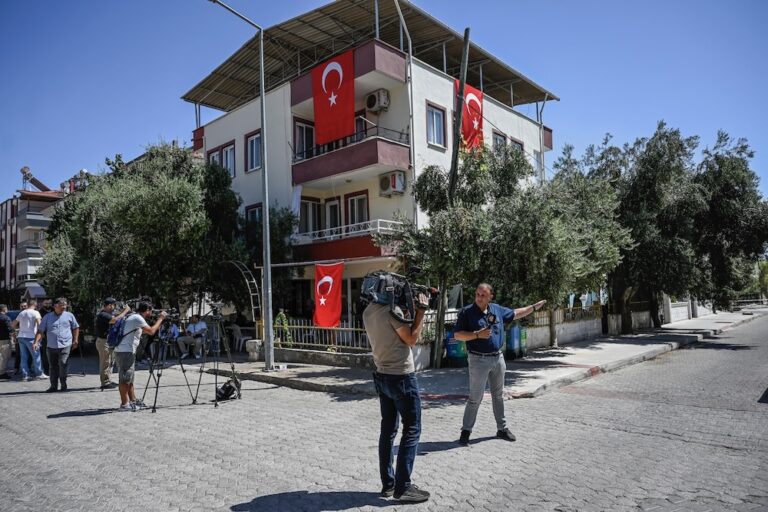(BIANET/IFEX) – Professors Ibrahim Kaboglu and Baskin Oran were acquitted on 10 May 2007 of “inciting to hatred and hostility” with the publication of the Minority Rights and Cultural Rights Working Group report. However, a court of appeal has now overturned the acquittal. The two have been on trial since 14 November 2005 under Article […]
(BIANET/IFEX) – Professors Ibrahim Kaboglu and Baskin Oran were acquitted on 10 May 2007 of “inciting to hatred and hostility” with the publication of the Minority Rights and Cultural Rights Working Group report. However, a court of appeal has now overturned the acquittal.
The two have been on trial since 14 November 2005 under Article 216/1, and face a possible sentence of between 1.5 and 4.5 years. In the report, the two academics discussed the term “citizenship of Turkey” (or literally “Turkeyness”) and the question of minorities.
Yavuz Önen, president of the Turkish Human Rights Foundation (TIHV), protested the fact that two academics could be tried for up to five years imprisonment for writing about issues that are being discussed in the preparation of a “civil” Constitution. He was referring to the concept of “Turkish Republic Citizenship” which has been included in new draft Constitution, a concept that does not differ greatly from the concept discussed by Kaboglu and Oran.
Kaboglu also commented on the “interesting coincidence” that the concept in the Constitutional draft was being published at the same time as their court acquittal was being overturned: “It has been shown clearly once again that it is more important to get rid of legal decisions that turn freedom of thought and expression into crimes than to rewrite the Constitution.”
The 8th Penal Chamber of the Supreme Court of Appeals had said in its justification of the overruling: “In the report, a redefinition of the term ‘minority’ will represent a danger to the unitary state and the indivisibility of the nation.” The court added that “the limits of freedom of criticism and thought had been overstepped with the discussions of super-and sub-identities”, and that the discussion had reached the level of constituting a “social danger”.
In a written statement, Kaboglu reacted to this interpretation of the report as “dangerous”: “There was no justification given for this evaluation and no proof whatsoever of whatever danger was supposed to have emerged.”
Kaboglu is sure that the decree will be overturned in Strasbourg (that is, at the European Court of Human Rights), but his wish was that it would be overturned in Ankara.


